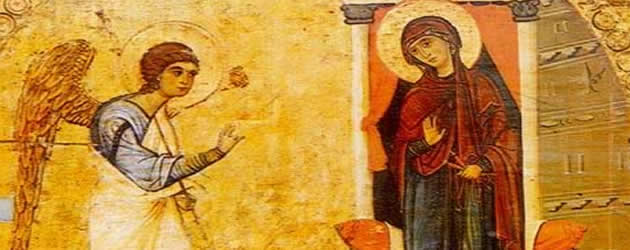Ch. 18 - The Incarnation

We begin with an explanation of the Christological definition formulated at the Ecumenical Council of Chalcedon in 451 A.D. Carson then speaks about the two means by which God has successively dealt with humanity. In the Old Testament, God descended (katabasis) to our human level in dealing with us, by offering us temporal goods as rewards and conceding to our sinful longings. This condescension came to a climax in the Incarnation when he took upon himself a human body and a human soul. In the New Testament, God takes on our humanity in order to lift us up out of our misery, so that we might ascend (anabasis) into the heights of his divinity. At this point, we read from the important passage Peter wrote in 2 Peter 1:4 - "he has granted to us his precious and very great promises, that through these you may escape from the corruption that is in the world because of passion, and become partakers of the divine nature."
We look closely at how Jesus identified himself with the Temple (in the end of John 2) and with how St. John - in the prologue of his Gospel - speaks of the Incarnation in the same terms, which describe how God came down upon the tabernacle among Israel in the Sinai wilderness.
From here, we move into St. Luke's Gospel, which begins with a very clear and precise indication of the historicity and verifiable nature of the information presented: "Inasmuch as many have undertaken to compile a narrative of the things which have been accomplished among us, just as they were delivered to us by those who from the beginning were eyewitnesses and ministers of the word, it seemed good to me also, having followed all things closely for some time past, to write an orderly account for you, most excellent The-oph'ilus, that you may know the truth concerning the things of which you have been informed" (Luke 1:1-4).
Come join us as we delve into the rich Old Testament allusions Luke paints in his beautiful Gospel. Caution: This will change the way you read St. Luke... from now on, you won't read it in the same light.


Comments
Was St. Joseph married before engaging St. Mary? If yes as per this talk, please kindly send me sources.
Francis, thank you for your question.
Here is the short answer from Catholic Answers (Catholic.com):
"An early tradition has it that Joseph was a widower who married the Virgin Mary later in life (after already having a family with his first wife). A later tradition says that Joseph was a virgin and that the "brothers" of Jesus were other relatives, perhaps cousins. Because we simply don’t know, Catholics are free to believe either tradition. All that is required of us to believe is that Mary remained a perpetual virgin, including throughout her marriage to Joseph."
Cf. http://www.catholic.com/quickquestions/was-st-joseph-a-virgin-or-a-widow...
The tradition that Joseph was a widower is noted in the Catholic Encyclopedia: http://www.newadvent.org/cathen/08504a.htm and is explained in this Wikipedia article: https://en.wikipedia.org/wiki/Brothers_of_Jesus